




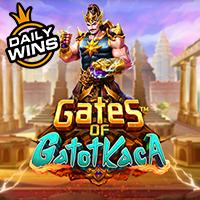
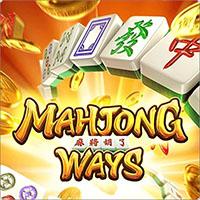

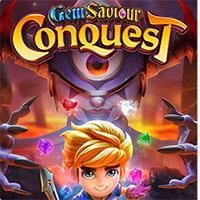

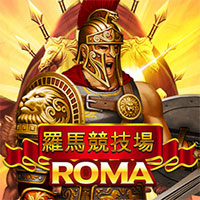



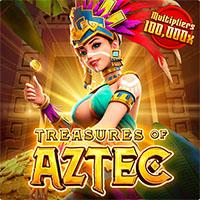



Introduction: From Mythical Beards to Cultural Perspectives on Wisdom and Age
The image of white beards has long served as a powerful symbol of wisdom across various cultures, originating from ancient myths and evolving into societal roles that honor age and experience. In many traditions, the bearded elder embodies not only physical maturity but also accumulated knowledge, spiritual authority, and moral guidance. This symbolism is vividly captured in stories of wise men from Greek mythology, such as the Oracle of Delphi, or the sagacious sages of Chinese Confucianism, where the beard signifies a life rich in learning and virtue. The Wisdom of White Beards and the Myth of Olympus explores how these mythic archetypes influence our understanding of wisdom today.
Transitioning from these mythic figures, we observe how societies across the globe have constructed tangible roles for elders—custodians of tradition, spiritual guides, and community leaders—whose wisdom is rooted in their life experiences. This continuum from myth to reality underscores a universal recognition: that age and experience serve as vital repositories of cultural knowledge and moral authority. The following sections delve into how different cultures perceive and value this connection, revealing both commonalities and unique distinctions in the human appreciation of aging and wisdom.
- The Cultural Construction of Wisdom: Beyond Myth and Stereotypes
- Age as a Repository of Cultural Knowledge and Spiritual Authority
- The Dynamics of Experience: Personal vs. Collective Wisdom Across Cultures
- Intergenerational Transmission of Wisdom: Methods, Challenges, and Innovations
- The Intersection of Age, Experience, and Wisdom in Contemporary Society
- Reconnecting with the Mythical: Wisdom as a Bridge Between Myth and Reality
The Cultural Construction of Wisdom: Beyond Myth and Stereotypes
Different cultures have distinct frameworks for understanding and valuing wisdom in relation to age. In East Asian societies like China, the Confucian ideal venerates elders as moral exemplars, whose life experiences serve as repositories of societal values. Confucius himself emphasized filial piety and respect for elders, considering them essential for social harmony. Conversely, many Western cultures have historically celebrated youth and innovation, sometimes viewing elders as repositories of tradition but not necessarily as sources of current societal influence. This divergence reflects underlying societal structures—collectivist versus individualist—and their respective valuation of age-based wisdom.
Challenging stereotypes reveals a nuanced picture: in some societies, youth is celebrated for its dynamism and adaptability, yet elders continue to hold revered positions. For example, in Indigenous communities worldwide—such as the Māori of New Zealand or Native American tribes—elders are considered living libraries, their stories and experiences integral to cultural continuity. Modern research supports this: studies indicate that societies that respect and incorporate elder wisdom tend to foster social cohesion and transmit vital cultural knowledge effectively.
Influence of Societal Structure and Values
The societal emphasis on individual achievement versus collective harmony shapes perceptions of wisdom. In hierarchical cultures, age often correlates with authority, while egalitarian societies might prioritize youthful innovation. Recognizing these differences enhances cross-cultural understanding and demonstrates that wisdom is multifaceted—encompassing moral, spiritual, and practical dimensions.
Age as a Repository of Cultural Knowledge and Spiritual Authority
Throughout history, elders have played critical roles in preserving cultural narratives, spiritual practices, and traditional knowledge. In Confucian societies, elders serve as custodians of rituals and moral teachings, often participating in ceremonies that reinforce social cohesion. In Indigenous oral traditions, elders are the keepers of stories that encode history, laws, and cosmologies—an essential function for cultural survival in communities with limited written language.
For example, the Māori elders (kaumātua) are revered for their wisdom, which guides social decisions and maintains cultural identity. Similarly, in religious contexts such as Hinduism and Buddhism, aging is associated with spiritual evolution, with senior monks and priests regarded as spiritual authorities whose insights are sought in community matters.
The impact of life stages is evident: as individuals accumulate experiences, their capacity to serve as cultural repositories deepens, reinforcing societal continuity and spiritual authority.
Case Studies
| Culture / Context | Role of Elders | Significance |
|---|---|---|
| Confucian China | Moral guides, educators | Preserve social harmony and tradition |
| Indigenous Māori | Cultural custodians, storytellers | Maintain cultural identity and history |
| Religious elders (e.g., Buddhist monks) | Spiritual authorities, teachers | Guide spiritual practice and moral development |
The Dynamics of Experience: Personal vs. Collective Wisdom Across Cultures
Experience translates into wisdom differently depending on cultural contexts. In Western societies emphasizing individualism, personal achievements and life stories often shape societal perceptions of wisdom. Conversely, collectivist cultures tend to view wisdom as a shared resource—embodying collective memory and societal values. For instance, in Japan, the concept of “keieijuku” (business elders) highlights how accumulated professional experience informs community decision-making, blending personal growth with collective benefit.
The interplay between personal development and cultural knowledge is complex. Societies that encourage mentorship and storytelling foster environments where individual experiences contribute to collective wisdom. Furthermore, attitudes towards risk and failure influence how experiences are valued: cultures that see failure as a learning opportunity tend to cultivate resilient, wise individuals and communities.
Cultural Attitudes Toward Risk and Learning
- Western cultures: Emphasize innovation and risk-taking as pathways to wisdom, often celebrating entrepreneurial failures as learning milestones.
- Eastern traditions: Value patience and incremental learning, viewing wisdom as a gradual process rooted in perseverance and harmony.
Intergenerational Transmission of Wisdom: Methods, Challenges, and Innovations
Traditionally, storytelling, rituals, and mentorship have been the primary methods of passing wisdom from elders to younger generations. These practices foster continuity and cultural identity, ensuring that vital knowledge endures through time. However, modern challenges like globalization, technological change, and shifting family structures threaten these traditional channels.
Innovative approaches are emerging to bridge generational gaps. Digital storytelling platforms enable elders to share stories across borders, while intercultural exchanges foster mutual understanding. Cross-generational mentorship programs—often facilitated through social media—connect youth with experienced elders, ensuring that wisdom remains a living, evolving tradition.
New Avenues for Intergenerational Learning
- Digital storytelling and video platforms
- Intercultural exchange programs
- Cross-generational mentorships facilitated by technology
The Intersection of Age, Experience, and Wisdom in Contemporary Society
With aging populations in many countries, societal valuation of wisdom and experience is increasingly vital. Countries like Japan and Italy are actively promoting lifelong learning initiatives, recognizing that continuous education enhances personal growth and societal contribution. These efforts help integrate older adults into active roles, fostering intergenerational respect and collaboration.
Modern contexts emphasize that wisdom is not static but a dynamic quality cultivated through ongoing experiences. Lifelong learning—via courses, community engagement, or new hobbies—keeps the mind active and broadens perspectives, reinforcing that age can be a source of strength rather than decline.
Fostering Mutual Respect
“Building bridges between generations involves recognizing that wisdom is a shared human heritage—an evolving gift shaped by age, experience, and open-mindedness.”
Reconnecting with the Mythical: Wisdom as a Bridge Between Myth and Reality
Ancient myths continue to symbolize the revered status of elders and their wisdom. The bearded sage or the elder on Olympus embodies qualities that transcend time—moral integrity, spiritual insight, and life experience. These archetypes serve as a mirror for contemporary society’s recognition that true wisdom often comes with age, yet they also remind us that wisdom is a human pursuit, rooted in learning, reflection, and humility.
Integrating mythic symbolism with modern appreciation involves acknowledging that wisdom is both a personal journey and a cultural ideal. As we navigate changing societal landscapes, the enduring archetype of the elder—embodying wisdom and experience—remains a potent symbol of human growth and learning.
In conclusion, understanding how different cultures perceive and honor age and experience enriches our collective appreciation of wisdom. Just as the mythic beards symbolize more than mere age, contemporary societies can foster environments where experience is valued as a vital resource for individual and community development.
